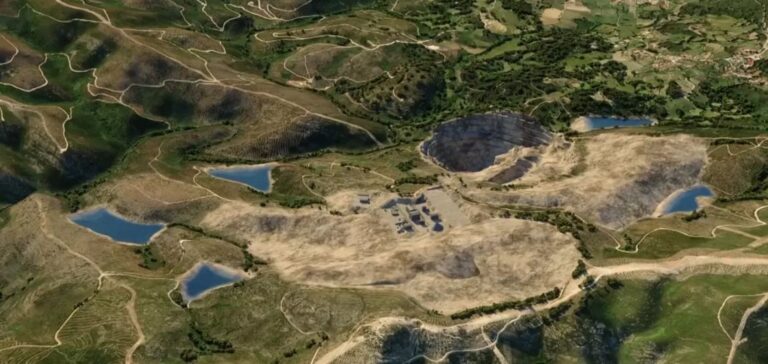The Portuguese Environmental Protection Agency (APA) announced on Thursday that it had given the go-ahead, subject to certain conditions, to a second project in the country to mine lithium, a metal used to manufacture batteries and essential to the country’s energy transition.
APA Approves Lithium Refining Project in Northern Portugal
Portugal, which holds the largest lithium reserves in Europe, is already the main producer, but for the time being, its production is used entirely for ceramics and glassmaking.
“In line with what has been done in similar projects, the assessment carried out took into account the strategic interest of lithium for carbon neutrality objectives and the energy transition,” APA explained in a statement.
An initial lithium mine project by British company Savannah in the Boticas commune in the north of the country received conditional authorization from the APA last May.
The project approved on Thursday, designed by the Portuguese company Lusorecursos in the nearby municipality of Montalegre, also includes the construction of a metal refining plant.
Lusorecursos Plans to Produce 15 to 30 Million Tons of Lithium Hydroxide
With an estimated investment of €650 million, Lusorecursos plans to produce between 15 and 30 million tonnes of lithium hydroxide by 2027.
These two mining projects are being contested by environmental NGOs and a section of the local population in this rural region renowned for its beef production and home to the Iberian wolf.
Along with cobalt and nickel, lithium is one of the metals needed to manufacture the electric batteries that will replace internal combustion engines.
To reduce its dependence on imports, particularly from China, the European Union is preparing to open mines and refineries to process it.
Why does it matter?
Portugal’s Environmental Protection Agency (APA) has given the green light to a second lithium mining project, underlining its importance for the country’s energy transition. However, these projects are contested by environmental NGOs and local residents.
Lithium is essential for electric batteries, which are in great demand as electric vehicles take off. This decision reflects the European Union’s efforts to reduce its dependence on lithium imports, mainly from China.






















